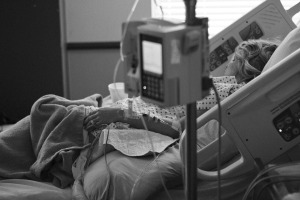Dealing with hospital discharge
I was recently asked to be involved in the discharge of a person from hospital, as the discharge team and social worker thought that it was time this person was admitted into residential care. They were both physically frail and had moderate stage dementia. And of course because they were in hospital, they were far more confused and unwell than they would normally be. It was just too much for them to be able to safely go home. Or that was what the discharge team thought!
When they contacted me and said that this person was bed bound and would therefore need two carers to manoeuvre them around in the bed to give personal care. This person was noted to be particularly confused and agitated on admission, but over the time they had been in hospital, they had settled and become more accepting of care from the staff, however as there had been a problem earlier, this was still a potential issue.
I pointed out, without trying to lay the blame at anyone in particular, that this period in hospital had been very disempowering for that person, as they had been able to walk with a walking frame before they were admitted and now it seemed, not only were they assessed as not be able to walk, but not even stand. My comment instigated a physiotherapist assessment, who confirmed that although unsteady, the person could still walk with the aid of frame, but needed guidance as to where to go. The issue of where to go would be less of a problem at home, where they are familiar with the layout!
The next issue to tackle was the resistiveness to care, which can happen at home, if they get grumpy and confused all at the same time. This can happen to any of us, we can all become grumpy from time to time, so why isn’t a person with dementia allowed to behave in a totally normal way? There are strategies in place to try to deal with their behaviour, but in addition, I asked for an up to date assessment of their needs by the mental health team, to investigate if something could be done to moderate their behaviour. They might be able to help and it is certainly worth asking the question and getting an assessment done.
I also explained to the discharge team that the very clearly and consistently expressed wish of this person was to be cared for at home, so going into care always needed to be a last resort and all possible options to make going home needed to be investigated first.
The outcome of my advocacy was that three days after the first phone call to say that this person was bed bound and needed to go into a care home, hospital transport was booked to take them home and they were considered ambulant and their outburst was understood to be that of a poorly frightened person when they were taken into a strange environment of the hospital in the middle of the night, at a time when they were acutely unwell and not something happening all the time!
Great result!







Leave A Comment